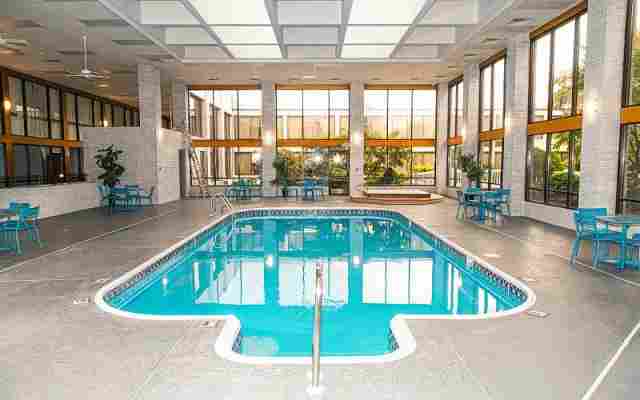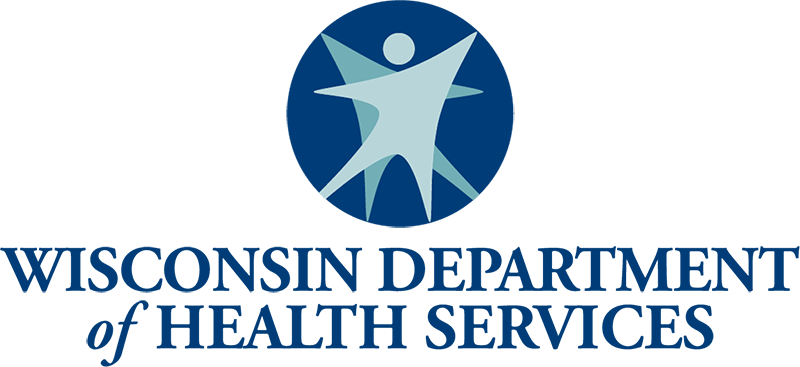
Dodgeville, Wisconsin, United States
Wood Violet Recovery
Verified
Verified
This provider’s information has been quality-checked by Recovery.com’s Research Team for accuracy and completeness, including center verification through appropriate third-party organizations.
Joint Commission Accredited
The Joint Commission accreditation is a voluntary, objective process that evaluates and accredits healthcare organizations (like treatment centers) based on performance standards designed to improve quality and safety for patients. To be accredited means the treatment center has been found to meet the Commission's standards for quality and safety in patient care.
Provider's Policy
We accept a wide range of insurance networks to ensure that you will be able to receive the treatment you need and deserve. Wood Violet Recovery does not accept Medicaid/Medicare.
Highlights from the Center
Highlights
These highlights are provided by and paid for by the center.
Pool
Private Rooms Available
Tech Friendly
12-Step Approach
About Wood Violet Recovery
Wood Violet Recovery is an addiction treatment facility in rural Wisconsin. They offer a wide range of substance and alcohol abuse disorder treatment options including detox and residential, including treatment for co-occurring disorders. They believe that each person that walks through their doors is an individual who should receive treatment according to their needs. They offer a full range of treatment activities including group therapies, individual sessions, nutritious chef-prepared meals, and recreational activities.
A Customized Path to Sobriety
Wood Violet Recovery uses evidence-based therapies to craft a recovery plan for each client’s means and needs. They customize the client’s path to sobriety using tools like detox, medication-assisted treatment (MAT), a range of faith and science-based therapies including cognitive behavioral therapy (CBT), and aftercare advice. Their experienced staff consists of dedicated doctors, therapists, nurses, and more. Wood Violet’s inpatient rehab program includes 24-hour medical care, emotional support, and covering day-to-day needs so clients can focus on fighting addiction free of outside temptations and harmful distractions.
Individual and Group Therapies
Group therapy is central to Wood Violet Recovery’s treatment approach. Drug and alcohol counselors conduct these sessions, which usually focus on specific subjects like anger-related issues or relapse. Clients can also receive eye movement and desensitization reprocessing (EMDR) to manage trauma, or family therapy to improve relationships. Additionally, SMART Recovery and Alcoholics Anonymous (AA) support group meetings are available for clients to discuss sobriety with others who have had similar experiences.
A Welcoming Community
Although it’s conveniently located near several metropolitan areas, Wood Violet Recovery itself is nestled in the serene Wisconsin countryside. It is designed to feel like a welcoming community, not an impersonal treatment facility. Clients each have their own bedroom and bathroom. The facility’s common areas are accessible and comfortable, offering opportunities to receive treatment, connect with others, eat, exercise, and relax. The staff work with each client to craft a long-term aftercare plan.
Read More
Insurance Accepted
Provider's Policy:We accept a wide range of insurance networks to ensure that you will be able to receive the treatment you need and deserve. Wood Violet Recovery does not accept Medicaid/Medicare.
More Sunshine Behavioral Health Centers
Experienced and Caring Staff
The staff at Wood Violet Recovery are devoted to making each visit secure, comfortable, and efficient. Their dedicated workers include nurses and doctors who assist clients during detox, as well as social workers and clinical counselors who conduct group therapy sessions and manage cases. A recovery advocate bridges the gap between patients and staff to facilitate communication and ensure patients’ needs and concerns are addressed.
Co-Occurring Disorders
Wood Violet Recovery is able to treat clients who have both a substance use disorder and another mental health issue like depression, trauma, or bipolar disorder. They offer specialized care to improve recovery outcomes by simultaneously addressing 2+ disorders. Clients may receive CBT as a form of talk therapy to work through negative beliefs, thoughts, and behaviors, or medication when appropriate.
Cognitive Behavioral Therapy
Wood Violet Recovery offers science-backed approaches to recovery, including behavioral therapies with proven track records. Cognitive-behavioral therapy examines the underlying causes of someone’s addiction as it helps clients develop better coping mechanisms. Clients will learn to identify triggers, feelings, and begin to regulate them with different techniques.
Countryside Comforts & Recreation
Clients can stroll Wood Violet Recovery’s grounds, fish from its pond, compete with others in volleyball or horseshoes, play darts or ping pong, borrow books from its library, or participate in other activities and outings. The center features state-of-the-art gym equipment and a heated indoor pool. The kitchen provides tasty, nutritious food and housekeeping ensures the surroundings are clean and safe.

Center Overview
Young Adults
Emerging adults ages 18-25 receive treatment catered to the unique challenges of early adulthood, like college, risky behaviors, and vocational struggles.
Men and Women
Men and women attend treatment for addiction in a co-ed setting, going to therapy groups together to share experiences, struggles, and successes.
Midlife Adults
For adults ages 40+, treatment shifts to focus on the unique challenges, blocks, and risk factors of their age group, and unites peers in a similar community.
Professionals
Busy, high-ranking professionals get the personalized treatment they need with greater accommodations for work, privacy, and outside communication.
Veterans
Patients who completed active military duty receive specialized treatment focused on trauma, grief, loss, and finding a new work-life balance.

Treatment Focus
This center treats primary substance use disorders and co-occurring mental health conditions. Your treatment plan addresses each condition at once with personalized, compassionate care for comprehensive healing.
Treatment
Specializations
Alcohol
Using alcohol as a coping mechanism, or drinking excessively throughout the week, signals an alcohol use disorder.
Anxiety
Anxiety is a common mental health condition that can include excessive worry, panic attacks, physical tension, and increased blood pressure.
Detox
Detox fully and safely removes toxic substances from the body, allowing the next steps in treatment to begin with a clean slate.
Co-Occurring Disorders
A person with multiple mental health diagnoses, such as addiction and depression, has co-occurring disorders also called dual diagnosis.
Depression
Symptoms of depression may include fatigue, a sense of numbness, and loss of interest in activities. This condition can range from mild to severe.
Drug Addiction
Drug addiction is the excessive and repetitive use of substances, despite harmful consequences to a person's life, health, and relationships.
Prescription Drugs
It's possible to abuse any drug, even prescribed ones. If you crave a medication, or regularly take it more than directed, you may have an addiction.
Professionals
Busy, high-ranking professionals get the personalized treatment they need with greater accommodations for work, privacy, and outside communication.
Treatment Services
Detox (on-site with residential)
This is often the first step of addiction treatment. For many people, it's dangerous to detox without proper medical support.
Residential
In a residential rehab program, patients live onsite, with access to daily treatment and 24-hour care. An average stay is 30-90 days.
Approaches
Experiential
Expressive tools and therapies help patients process past situations, learn more about themselves, and find healing through action.
Medical
Medical addiction treatment uses approved medications to manage withdrawals and cravings, and to treat contributing mental health conditions.
Personalized Treatment
The specific needs, histories, and conditions of individual patients receive personalized, highly relevant care throughout their recovery journey.
Twelve Step
Incorporating spirituality, community, and responsibility, 12-Step philosophies prioritize the guidance of a Higher Power and a continuation of 12-Step practices.
Therapies
1-on-1 Counseling
Patient and therapist meet 1-on-1 to work through difficult emotions and behavioral challenges in a personal, private setting.
Eye Movement Therapy (EMDR)
Lateral, guided eye movements help reduce the emotional reactions of retelling and reprocessing trauma, allowing intense feelings to dissipate.
Family Therapy
Family therapy addresses group dynamics within a family system, with a focus on improving communication and interrupting unhealthy relationship patterns.
Medication-Assisted Treatment
Combined with behavioral therapy, prescribed medications can enhance treatment by relieving withdrawal symptoms and focus patients on their recovery.
Recreation Therapy
In recreation therapy, recovery can be joyful. Patients practice social skills and work through emotional triggers by engaging in fun activities.
Relaxation Therapy
Muscle relaxation techniques relax mind and body. They can easily be practiced outside treatment, making it a valuable coping tool for continued recovery.
Twelve Step Facilitation
12-Step groups offer a framework for addiction recovery. Members commit to a higher power, recognize their issues, and support each other in the healing process.
Conditions We Treat
Bipolar
This mental health condition is characterized by extreme mood swings between depression, mania, and remission.
Depression
Symptoms of depression may include fatigue, a sense of numbness, and loss of interest in activities. This condition can range from mild to severe.
Trauma
Some traumatic events are so disturbing that they cause long-term mental health problems. Those ongoing issues can also be referred to as "trauma."
Substances We Treat
Alcohol
Using alcohol as a coping mechanism, or drinking excessively throughout the week, signals an alcohol use disorder.
Benzodiazepines
Benzodiazepines are prescribed to treat anxiety and sleep issues. They are highly habit forming, and their abuse can cause mood changes and poor judgement.
Co-Occurring Disorders
A person with multiple mental health diagnoses, such as addiction and depression, has co-occurring disorders also called dual diagnosis.
Cocaine
Cocaine is a stimulant with euphoric effects. Agitation, muscle ticks, psychosis, and heart issues are common symptoms of cocaine abuse.
Drug Addiction
Drug addiction is the excessive and repetitive use of substances, despite harmful consequences to a person's life, health, and relationships.
Heroin
Heroin is a highly addictive and illegal opioid. It can cause insomnia, collapsed veins, heart issues, and additional mental health issues.
Psychedelics
Hallucinogenic drugs—like LSD—cause euphoria and increased sensory experiences. When abused, they can lead to depression and psychosis.
Methamphetamine
Methamphetamine, or meth, increases energy, agitation, and paranoia. Long-term use can result in severe physical and mental health issues.
Opioids
Opioids produce pain-relief and euphoria, which can lead to addiction. This class of drugs includes prescribed medication and the illegal drug heroin.
Experience
Personal Amenities
Amenities
Special Considerations
Flexible technology policies
Centers with flexible technology policies allow professionals to stay in touch with work and give patients a greater sense of connection and normalcy.
Activities
Learn more about Wood Violet Recovery
We love hearing about your treatment experience
Help individuals and families seeking treatment by sharing your first-hand experience with this treatment provider. Review Guidelines.












































